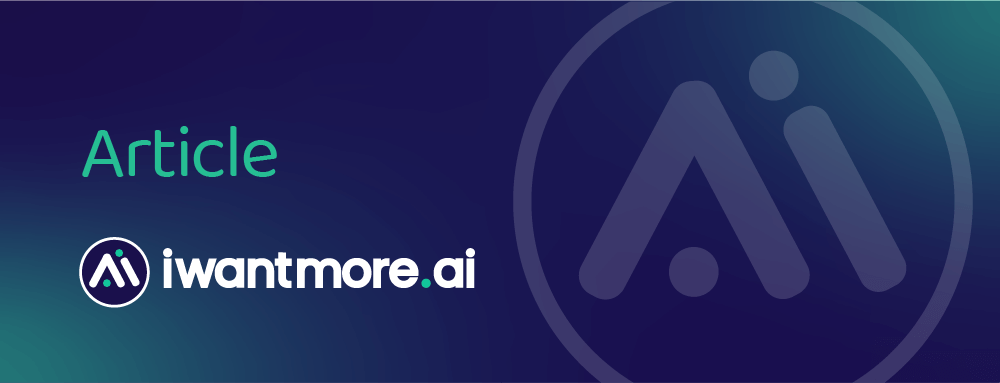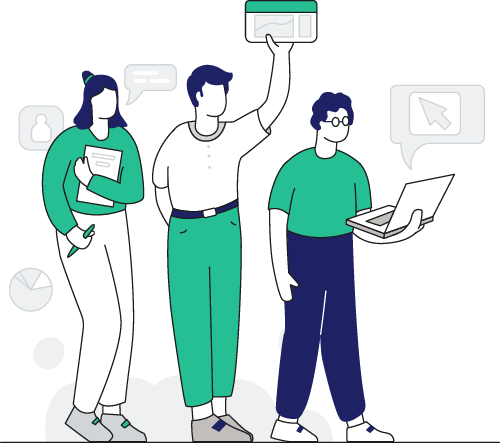
Are you ready for the AI agent boss?
AI agents are the fancy buzzword of the day. Loads of hype, but also loads of potential. Despite the hype, over promise and noise, we are still witnessing the birth of a new business model: human-agent teams. Human employees that are building, managing and working alongside AI agents.
Meet the AI agent boss.
Intelligence on tap
According to Microsoft’s 2025 Work Trend Index, 82% of leaders expect to use digital labour to expand their workforce over the next 12–18 months.
This addresses a growing capacity gap. 80% of employees report that they lack the time or energy to meet current demands, while 53% of leaders say productivity must increase. AI offers these employers an abundant, cost-effective resource to bridge this gap. It allows them to scale their workforce capabilities without proportionately increasing headcount.
A CFO’s dream.
Human-agent teams
The traditional org chart is giving way to what Microsoft now calls the ‘work chart’. Can’t say we love the name, but this is a flexible, goal-oriented structure built around tasks rather than people, teams or departments. In this new model, AI agents join human teams as digital colleagues, taking on specific tasks and workflows under human supervision.
This change is unfolding in three phases:
- Human with assistant: AI handles repetitive tasks to improve individual productivity.
- Human-agent teams: Agents actively collaborate on complex tasks, directed by humans.
- Human-led, agent-operated: Humans set strategic direction; agents execute processes end-to-end.
This isn’t a far-off fantasy land. Already, according to the Work Trend Index, 46% of global leaders report using AI agents to fully automate workflows for teams or entire functions.
Becoming an agent boss
As agents become integrated into our daily work, a new role has emerged: the agent boss. No longer confined just to managing people, employees must now learn to build, delegate to and manage teams of AI agents.
- 41% of leaders expect managing AI agents to become part of their teams’ responsibilities within five years.
- 32% of organisations plan to hire AI agent specialists to design and optimise multi-agent systems.
- 47% of leaders are prioritising upskilling employees in AI capabilities over the next 12–18 months.
This is going to require a mindset shift. Employees must treat AI not as a mere tool but as a genuine partner, much like they would with a human team member.
The data shows that this change is happening faster than many expect
The most effective incentives connect AI use to outcomes, not just activity. The goal is to recognise contribution, not just participation.
- 71% of employees at Frontier Firms (firms structured around on-demand intelligence and powered by hybrid teams of humans and agents) report their companies are thriving, compared to 37% globally.
- 55% of Frontier Firm workers say they are able to take on more work, with 90% stating they have more opportunities for meaningful work.
- LinkedIn reports a 20.6% year-on-year headcount growth in AI-focused startups, double that of traditional Big Tech firms.
- By 2030, 70% of the skills used in today’s jobs are expected to change, according to LinkedIn’s future workforce analysis.
What lies ahead
AI literacy is now the most critical skill for many employees. Those who learn to build and lead human-agent teams will be at a distinct advantage. Companies that invest in AI training and agent management capabilities will be better positioned to scale and innovate.
In the not-so-distant future, managing a team of agents could be as common as managing a team of people today. As organisations transition to this new model, many employees will become, in effect, an agent boss..
We are iwantmore.ai – an AI consulting firm. We work with organisations to harness the power of AI across their whole business. If you want to explore how your business can use AI and automation contact us.
Interested in more content like this? Sign up to our Newsletter here.
Other AI articles you may be interested in:

There’s still some confusion as to what an AI agent actually is. In many cases it’s probably still just simple automation with a fancy name. But at the more sophisticated end of the spectrum, these autonomous systems have the potential to change the way businesses operate.

Many organisations stumble when it comes to implementing AI because they lack that clear framework and organisational structure to manage it. This is where an AI council comes in. But what exactly is an AI council?

AI tools have become indispensable for many businesses looking to boost productivity, creativity, and efficiency. Yet, lurking behind many official corporate policies (if they exist) is shadow AI.

We look at, and break down, the key differences between rule-based automation and adaptive AI agents in simple terms.

Many organisations we speak to have delegated AI responsibilities entirely to their IT departments. But is this right? Read our latest article below to find out more.

With AI-driven tools like Perplexity and ChatGPT emerging as alternative search engines, are we witnessing the slow death of SEO as we know it? Or is it just evolving?
iwantmore.ai – The AI consulting firm that helps you build a smarter business
Wherever you are with your AI implementation initiatives, we have a range of stand-alone AI quick start services to help you fast track the transformative benefits of AI across your business.



